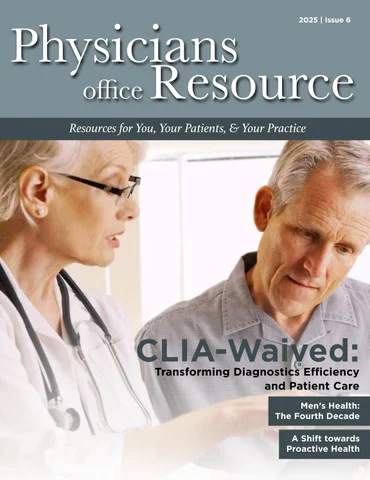A Turning Point for Digital Health
Thursday, May 14, 2020
by David Kliff
When the coronavirus finally passes, we could well look back at this crisis as a turning point for digital health. For years everyone has talked about digital health, but until the coronavirus forced patients and physicians into actually using digital health, it remained somewhat of a mystery. In this article, we'll examine more specifically how to use digital health for patients with diabetes.
One thing we don't do is review the many digital health apps or web sites. What we can say without being too geeky is these systems have functioned well, continue to improve, and are patient/doctor friendly. Based on the discussions, we've had some physicians don't have a choice in which system they use as their hospital or practice group has decided for them. To us, it doesn't matter which method is used heck we know of people using FaceTime for virtual consults.
The digital or virtual consult isn't that different than face to face consult in that you can only do so many a day, and the more prepared both you and the patient are, the more compelling these consults are. Thankfully for your patients with diabetes, getting prepared has never been easier as there are a plethora of apps and devices which, when adjusted by the patient, can seamlessly share information with your office.
The most common of these tools are continuous glucose monitors, CGM, which, as the name implies, measure a patient's glucose on a continuous basis. The two most prevalent systems come from Dexcom and Abbott. The G6 from Dexcom and Libre from Abbott (as we write the Libre2 is awaiting FDA approval) both collect glucose data and can then share this data with your office. These systems are patient-friendly, accurate, and reliable. Better still, both eliminate the need for any fingersticks.
Dexcom offers patients the Clarity app, which contains several reports which also can be shared. Abbott offers the LibreLink app, which does the same thing. Both apps make it easy to share glucose data, which can be as basic or detailed as you want.
In addition to glucose data, your patients with diabetes can also share other valuable pieces of data thanks to device connectivity. Today's insulin pumps offer similar reporting capabilities as well as some connected insulin pens such as the InPen from Companion Medical, which can share insulin dosing information. In the future, all the major insulin companies Lilly, Novo Nordisk, and Sanofi plan on offering connected insulin pens or connected cap covers which work with the current crop of disposable insulin pens.
Currently, Lilly has a connected cap cover awaiting FDA approval, while Novo has a durable connected pen similar to the InPen in use overseas. Novo has plans to introduce a connected cap cover here in the US sometime next year, given the prevalence of disposable insulin pens used in the US. Sanofi, for their part, is following Novo's lead, developing both connected durable pens and connected cap covers used with disposable insulin pens.
All of the insulin companies have agreements/partnerships with Dexcom and Abbott so that their apps collect not only insulin dosing data but also glucose data. These apps even include insulin dosing algorithms that perform the data analytics and then make insulin dosing recommendations to the patient.
Even with all this connectivity, some areas have not yet reached the digital stage. The most obvious being blood panels. This data can be easily shared once obtained, but the patient still must visit a lab or have these blood draws performed in an office setting. Therefore we would highly recommend these panels be done before a virtual consult.
Another area that has yet to go digital is therapy adherence. Several apps remind patients to take their pills, and many allow a patient to enter when they do so manually. Currently, there are no apps or tools we know of which track when or if patients are taking their medications as prescribed.
The same can said for patients following GLP-1 therapy. While insulin pens, both durable and disposable, are becoming digital, we are not aware of any GLP-1 pen, which is becoming digital.
For these reasons, glucose data tracked by a CGM becomes even more valuable as it can be deep insights into a patient's therapy adherence. As one physician put it since the technology is not available to track non-injectable therapy adherence, CGM data becomes even more helpful. As we all know, there are only so many variables that impact a patient's diabetes. CGM data allows for a more constructive consult with the patient.
Given the detail available in the reports generated by the CGM systems combined with a few simple questions to the patient, you can determine when or if the patient is taking their medications. As another physician noted, once you have the data, the questions asked serve as a process of elimination. Let's be honest here there are only so many reasons why a patient is not achieving reasonable control, CGM data combined with such simple questions allows you to get at the root cause.
The best news of all is that these CGM systems have become more affordable and widely reimbursed, allowing for greater patient adoption. Even better, both Dexcom and Abbott offer high-quality patient support, so you or your staff don't waste time training the patient on how to use the system and the apps that share data and produce reports. As we all know, time is not a renewable resource, and whether it's done virtually or in person, you cannot afford to waste time.

